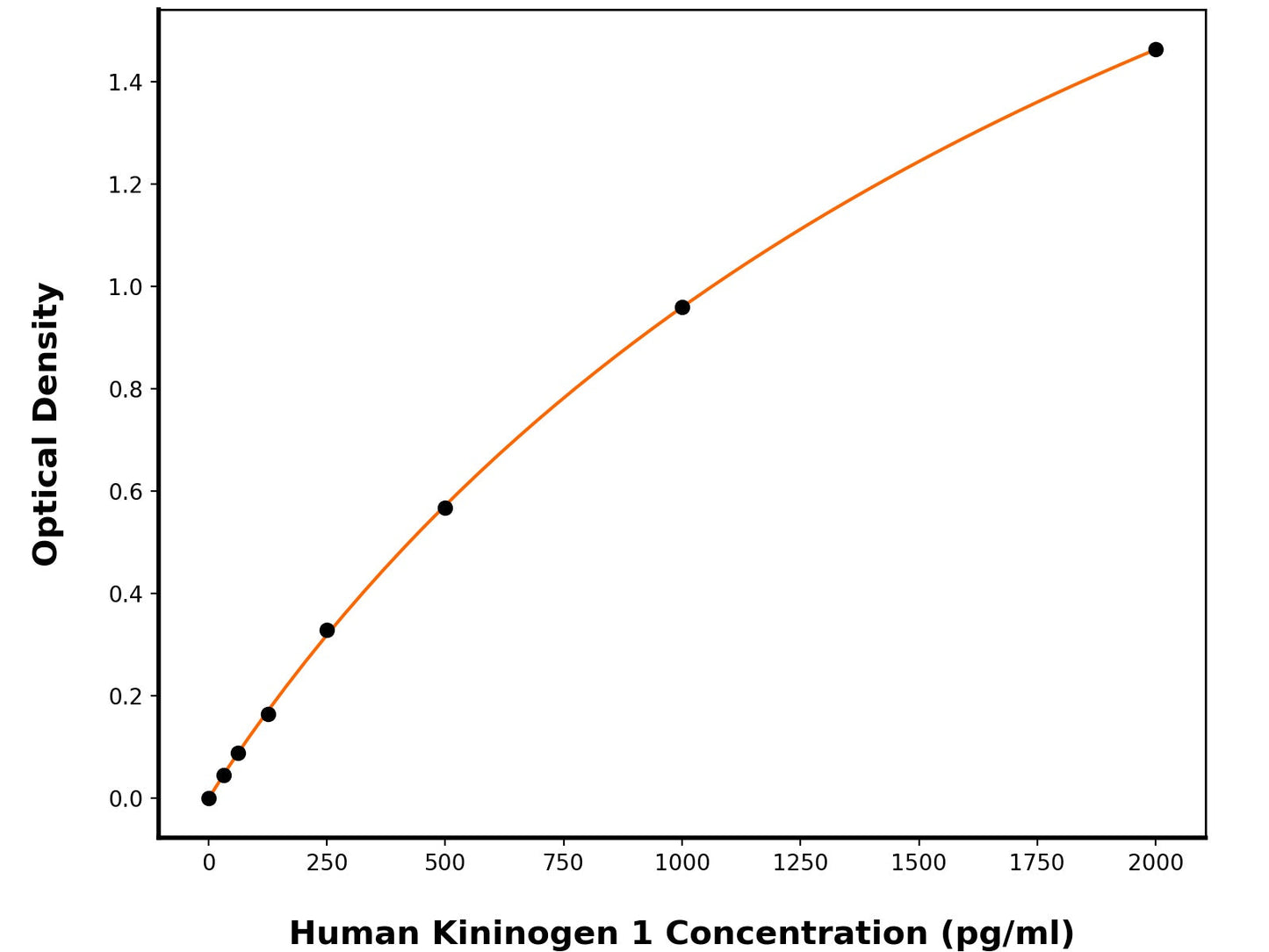1
/
of
1
Human Kininogen-1 (KNG1) ELISA Kit
Human Kininogen-1 (KNG1) ELISA Kit
This ELISA kit is designed to detect Human Kininogen-1 (Human KNG1). The assay plate has been pre-coated with mouse anti-Human Kininogen 1 monoclonal antibody. When the sample containing Kininogen 1 is added to the plate, it binds to the antibodies coated on the wells. Then, a horseradish peroxidase conjugated mouse anti-Human Kininogen 1 Antibody is added to the wells and binds to Kininogen 1 in the sample. After washing the wells, substrate solutions are added, and the color intensity is directly proportional to the amount of Human Kininogen 1 present. The reaction is stopped by adding an acidic stop solution, and the absorbance is measured at 450 nm.
Catalog No:
BPE105
Regular price
$624.00 USD
Regular price
$480.00 USD
Sale price
$624.00 USD
Unit price
/
per
2 weeks
Couldn't load pickup availability
Product Details
Species Reactivity
Human
Sensitivity
8.31 pg/mL
Detection Range
31.25-2000 pg/mL
Sample Type
Serum, plasma, cell culture supernates
Incubation(s)
3.5 hour(s)
Research Areas
Neuroscience, Cardiovascular, Signal Transduction
Background
Kininogen-1, also known as high molecular weight kininogen, Williams-Fitzgerald-Flaujeac factor, Alpha-2-thiol proteinase inhibitor, Fitzgerald factor, KNG1, and BDK, is a secreted protein that contains three cystatin domains. Kininogen-1 / KNG1 is a protein from the blood coagulation system as well as the kinin-kallikrein system. It is a protein that adsorbs to the surface of biomaterials that come in contact with blood. Kininogen-1 / KNG1 circulates throughout the blood and quickly adsorbs to the material surfaces. Kininogen-1 / KNG1 is one of the early participants of the intrinsic pathway of coagulation, together with Factor XII (Hageman factor) and prekallikrein. Kininogen-1 / KNG1 is one of the kininogens, a class of proteins. As with many other coagulation proteins, the protein was initially named after the patients in whom deficiency was first observed. When the clinical data were combined, it turned out that all patients had a deficiency of the same protein. Defects in KNG1 are the cause of high molecular weight kininogen deficiency (HMWK deficiency) which is an autosomal recessive coagulation defect. Patients with HWMK deficiency do not have a hemorrhagic tendency, but they exhibit abnormal surface-mediated activation of fibrinolysis.
Shipping Condition
Shipped on cold gel packs.
Storage Condition and Shelf Life
This product can be stored at 2-8C.
Analyte
Kininogen-1
Regulatory Status
For Research Use Only

